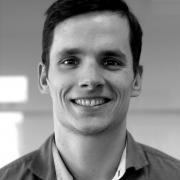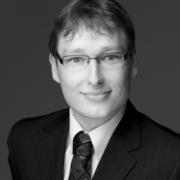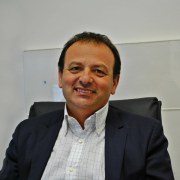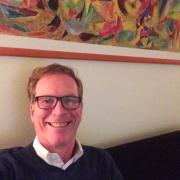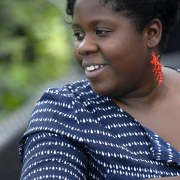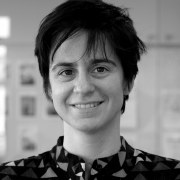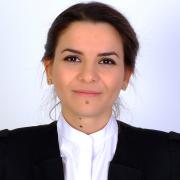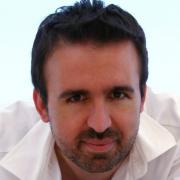Refugees and migrants: sharing initiatives
This is the second of two back-to-back sessions on the topic of science centres and museums and the refugee situation. After a first part focusing on the strategic rationale for engagement taking place just before lunch in the same room, this second part will be dedicated to lessons learnt from a series of ongoing initiatives.
In the last few months, Europe has lived through one of the largest migration waves in its modern history. While the dire situation of thousands of migrants and refugees led to acts of empathy, compassion and help on behalf of ordinary citizens, in some countries it has led to hateful and fearful behaviour.
In wake of these latest developments, some science centres and museums have stepped and are stepping in with initiatives, programmes and activities designed to facilitate the integration of refugees in various ways. But what exactly have the science museums been doing? How successful have they been and what kind of response have they received? What lessons can be learnt and shared?
Session speakers
Ronald will present the activities of the Deutsches Museum for refugees and migrants, with a special focus on unaccompanied youths. Currently, the museum runs periodic events such as guided tours or workshops designed to reflect the daily lives of the visitors, including modules focused on conveying both the German language and the content of the exhibitions. The presentation will not only highlight successes in planning and implementation, but will also report on challenges and difficulties.
Looking at their mission of active citizenship and accessibility to
knowledge, science centres and museums can play a prior role to tackle
prejudices and to support the integration of “new” citizens in their
country. In addition to specific programs addressed to immigrants
communities such as free admissions, visits or multicultural labs,
Città della Scienza has experimented joint initiatives with NGOs and
immigrants’ communities for the co-creation of new public programs.
Developing an exhibition on immigration with second generation’s
youngsters, Experimenting a site performance with art students from
different origins, Pulling down a wall as at the hearth of the Science
Festival program: these are some of the activities recently launched
at Città della Scienza in Naples.
Education and Exhibitions / Deputy Director
In 2016 Museon will open a new permanent exhibition called "Your Planet".
The UN sustainable development goals are the starting point of
this exhibition. Museon has created a programme for the refugees in The Hague,
in this session we'll share our experiences.
E-FABRIK' is an experimentation that has been developed since 2015 by Traces. The objectives of E-FABRIK’ are both social and digital inclusions and empowerment of young people and people with disabilities. Together, by using the digital resources of their area, they imagine, create and build concrete solutions answering to a difficulty expressed by the disabled person in the group. We have developed E-FABRIK' with various groups but it’s the work that we have done with a group of young isolated migrants that we would like to share in this session.
More than ever it is necessary to build a bridge between the Islamic communities and Europe. One way is to identify common roots between these apparently different worlds. Astronomy, as a field common to humankind, is ideal to bring closer different cultures. In that sense, Space Awareness develops the astronomy heritage kit “The journey of ideas” to fill a 1000 years gap in the history of science showing the influence of the Islamic world on modern astronomy. Some partners of the project already started field implementations with local refugee centres and will share their experiences, lessons learnt, and future plans.
Bursa Metropolitan Municipality, Directorate of Museums
Bursa History of Migration Museum has been opened to make citizens of Bursa acquainted with their ancestors who have emigrated centuries ago from Balkan countries, Crimea and the Western Thrace. Bursa History of Migration Museum always keeps in mind that all the activities should not only contribute to the socio-cultural life of city but also promote culture of living together, provide opportunities to understand each other, support integration of new comers as Bursa population is increasing. Museum activities are carried out under 3 main titles: exhibitions, conferences, and workshops for different target groups such as children, adults, and academics. All the activities have been planned according to the Museum concept which is migration. As Bursa is one of the terminals for Syrian refugees, the Museum has lately carried out projects for supporting their integration with local community. The presentation will focus on these activities.
Designer, Project Manager
From prehistoric years, people and animals used Lesbos as a bridge in their quest for a better, safer place to live. We see that again today, in the endless stream of refugees from the Middle East, fleeing war, famine, disaster, in their homelands.
The Natural History Museum of the Lesbos Petrified Forest, in collaboration with Tetragon, is reaching out to people that arrive in Lesbos, to inform and educate them about this unique island and its geological history.
At the same time, through its educational programs and its collaborations with other museums, scientists, the Global Geoparks Network of Unesco, universities and research centres from all over the world, the Museum tries to educate people about the refugee plight, inform them and reach out to them.

